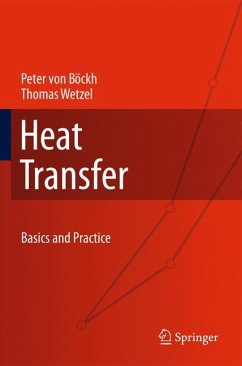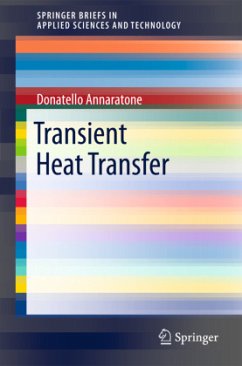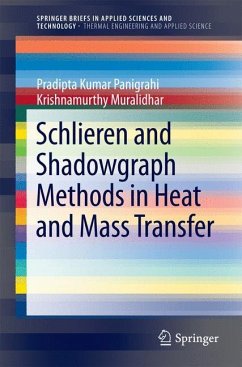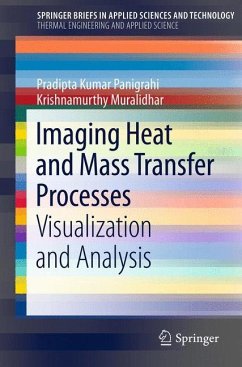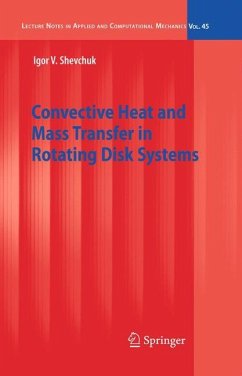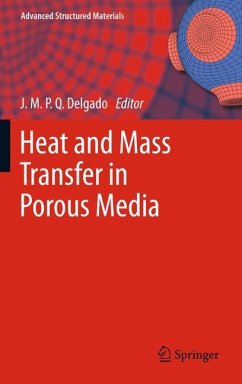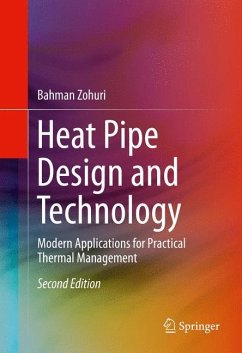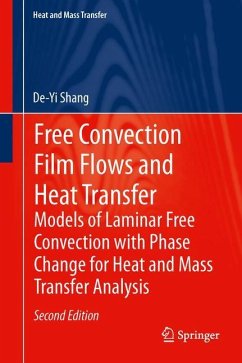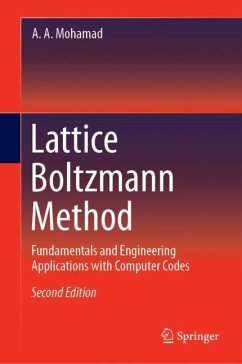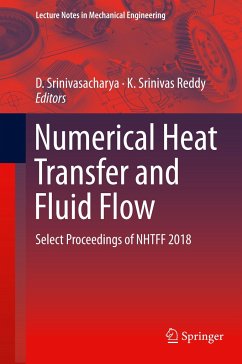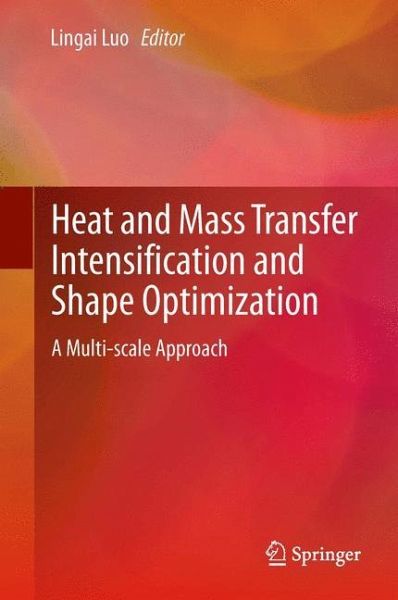
Heat and Mass Transfer Intensification and Shape Optimization
A Multi-scale Approach
Herausgegeben: Luo, Lingai

PAYBACK Punkte
38 °P sammeln!
Is the heat and mass transfer intensification defined as a new paradigm of process engineering, or is it just a common and old idea, renamed and given the current taste? Where might intensification occur? How to achieve intensification? How the shape optimization of thermal and fluidic devices leads to intensified heat and mass transfers? To answer these questions, Heat & Mass Transfer Intensification and Shape Optimization: A Multi-scale Approach clarifies the definition of the intensification by highlighting the potential role of the multi-scale structures, the specific interfacial area, the...
Is the heat and mass transfer intensification defined as a new paradigm of process engineering, or is it just a common and old idea, renamed and given the current taste? Where might intensification occur? How to achieve intensification? How the shape optimization of thermal and fluidic devices leads to intensified heat and mass transfers? To answer these questions, Heat & Mass Transfer Intensification and Shape Optimization: A Multi-scale Approach clarifies the definition of the intensification by highlighting the potential role of the multi-scale structures, the specific interfacial area, the distribution of driving force, the modes of energy supply and the temporal aspects of processes.
A reflection on the methods of process intensification or heat and mass transfer enhancement in multi-scale structures is provided, including porous media, heat exchangers, fluid distributors, mixers and reactors. A multi-scale approach to achieve intensification and shape optimization is developed and clearly explained.
Providing readers with a tool box of reflections, techniques, methods, supported by literature reviews, Heat & Mass Transfer Intensification and Shape Optimization: A Multi-scale Approach will be a key guide for students, a teaching aid for lecturers and a source of inspiration for future research subjects.
A reflection on the methods of process intensification or heat and mass transfer enhancement in multi-scale structures is provided, including porous media, heat exchangers, fluid distributors, mixers and reactors. A multi-scale approach to achieve intensification and shape optimization is developed and clearly explained.
Providing readers with a tool box of reflections, techniques, methods, supported by literature reviews, Heat & Mass Transfer Intensification and Shape Optimization: A Multi-scale Approach will be a key guide for students, a teaching aid for lecturers and a source of inspiration for future research subjects.





